18 May 2024 – Becoming compost
On Wendesday, I spoke at Interesting, along with a bunch of other great people. Here’s what I said, plus some bonus material I couldn’t fit in at the end.
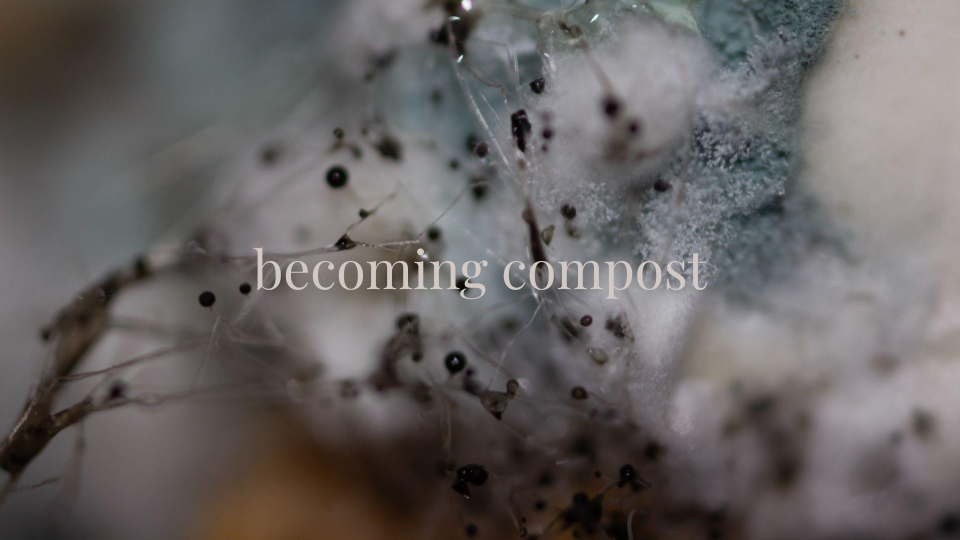
I love composting. I’m obsessed, in fact. A text message I sent to a friend last June sums it up pretty well.
I have a very emotional response to this compost you know. Like, I can't imagine my life without it now.
To start from the beginning, about 1.5 years ago I moved into a flat with a terrace.
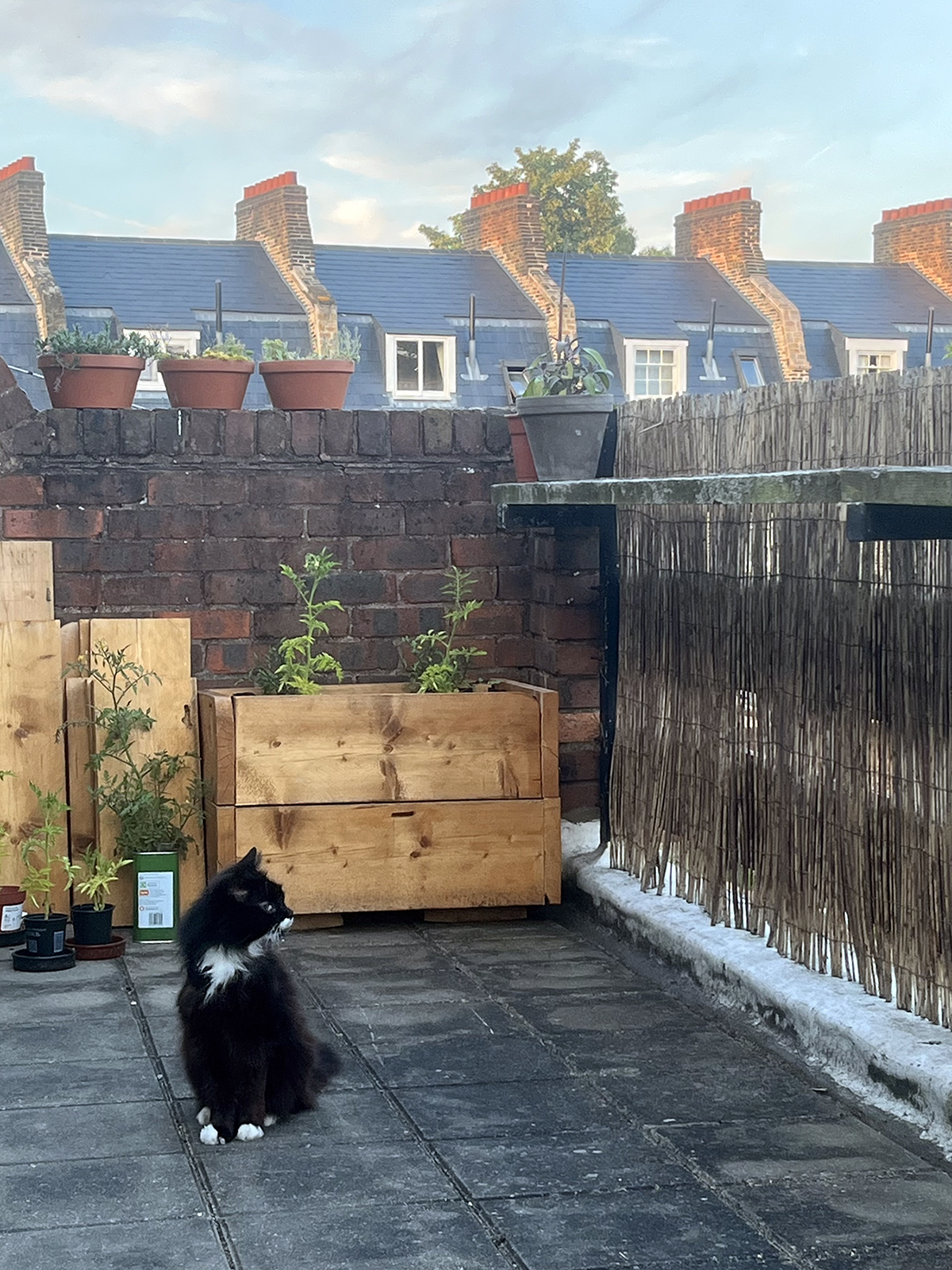
It’s my first home with outdoor space in a really long time. The council doesn’t collect food waste from estates, and as an aspiring grower, starting to compost felt almost required.
A lot of people think compost has to be in a garden. It doesn’t, but for small spaces and balconies, the received wisdom is to have a wormery. Unfortunately, I am scared of worms. I know, it’s very shameful and I’m trying to get over it. This picture is like exposure therapy.
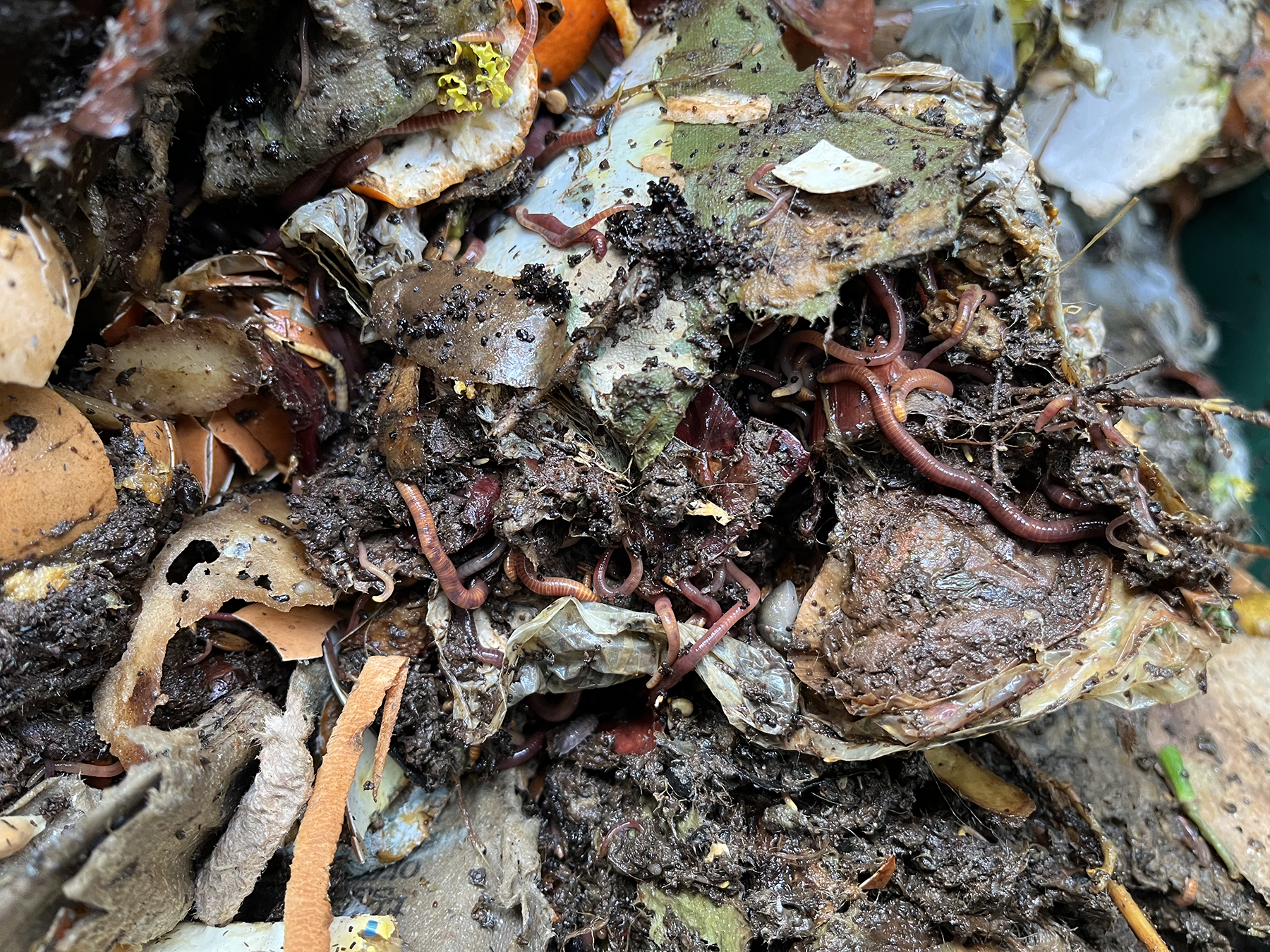
Anyway a box of worms wasn’t gonna happen.
One day, my pal Anna forwarded me a newsletter by Cass Marketos called The Rot about composting in small spaces. Cass referenced this book with instructions for composting in a bag. I dutifully bought the book and required materials.
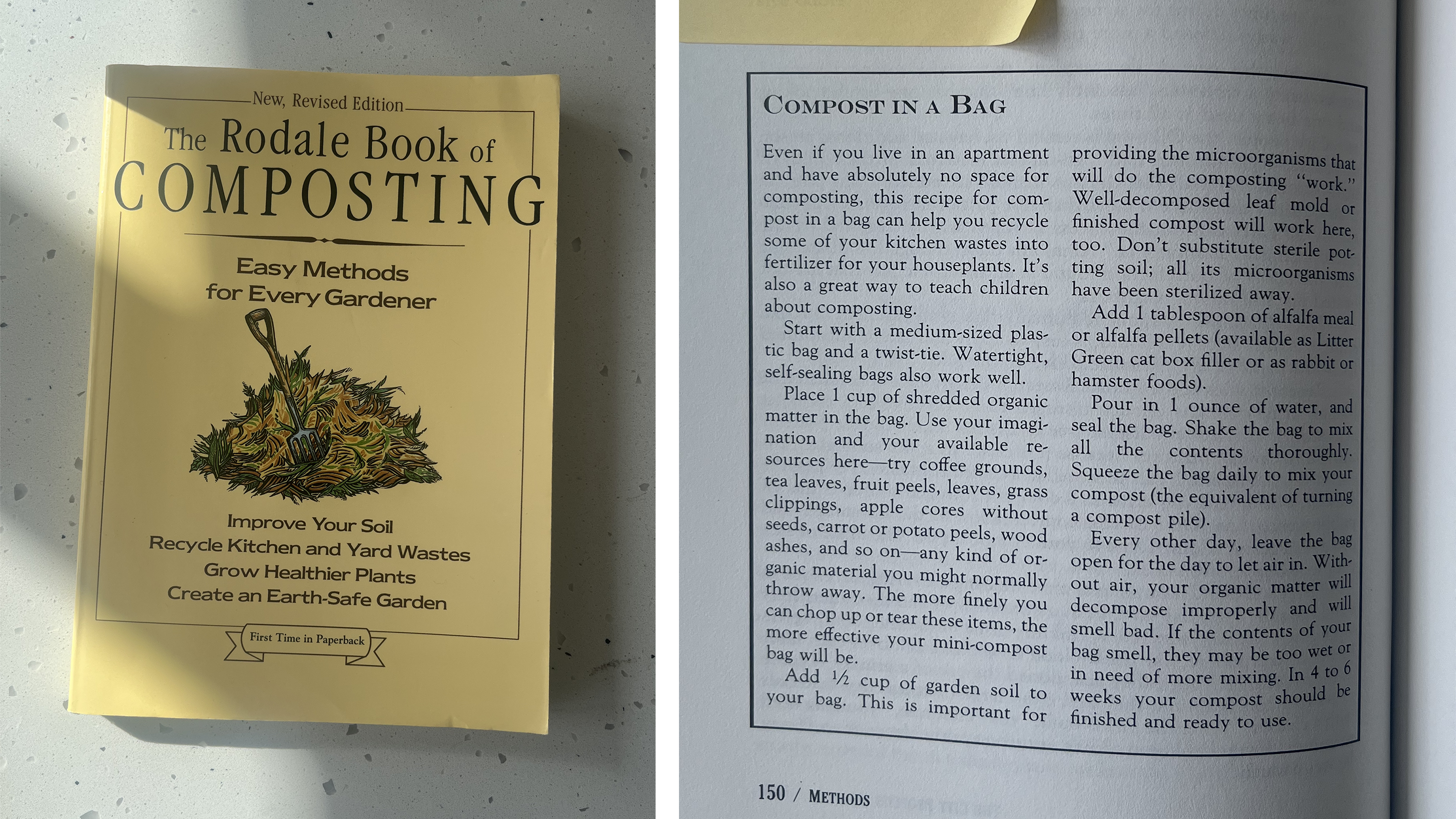
It says to mix wet waste or your food with alfalfa and some dirt from outside which gives the microorganisms a headstart. I got alfalfa from Pets at Home and added the pellets with a week or so’s worth of food. I don’t know what my neighbors thought of me scooping dirt into a bag outside our estate, but I was excited.
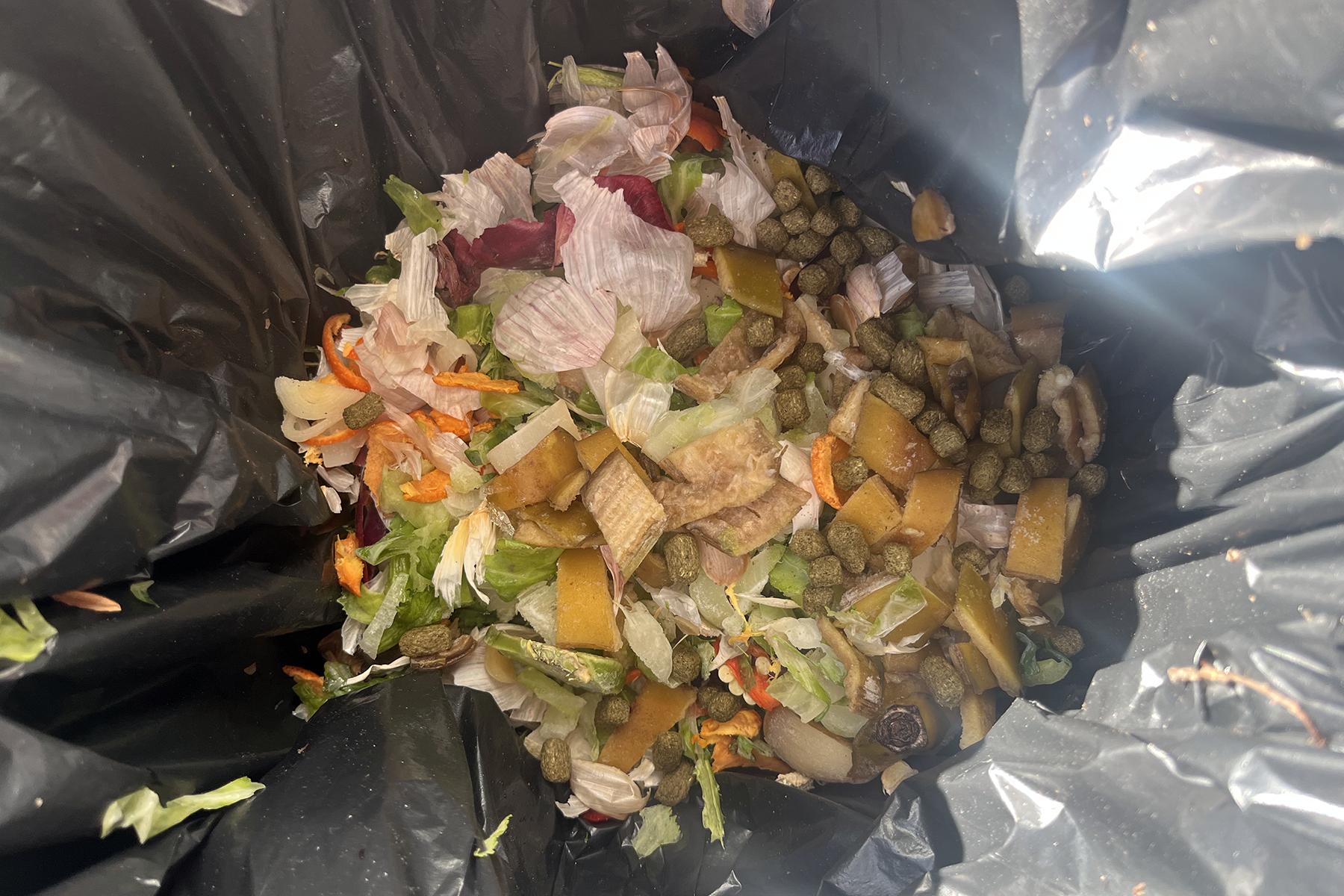
2 weeks in, it was not smelling good. I wasn’t sure what it should look like but I didn’t think that was right. 1 month in, it looked and smelled truly disgusting. Very literally a rotten bag. I can't believe I had this in my kitchen for so long.
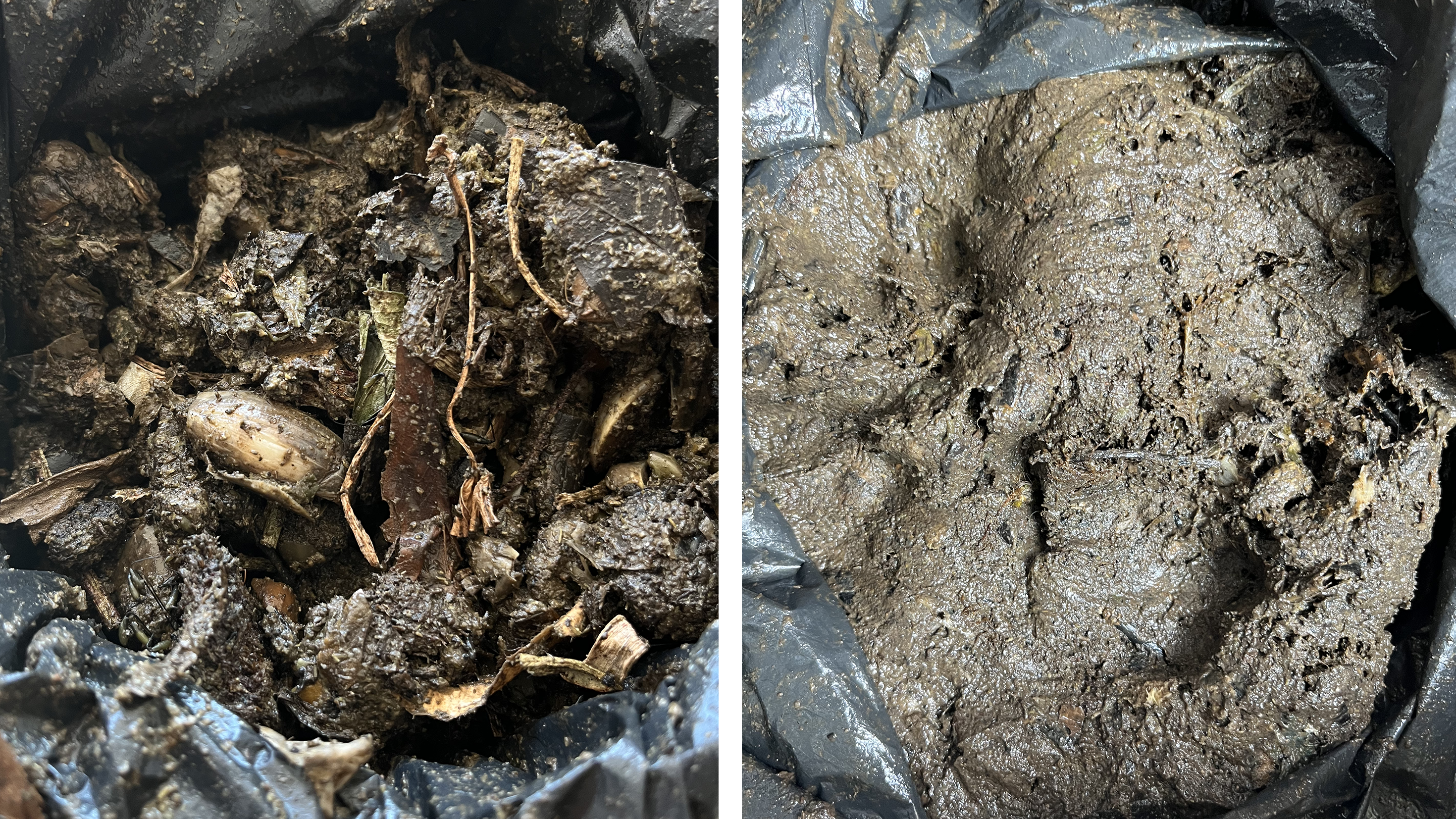
I was nearly ready to give up but my unhealthy habit of documenting everything on Instagram paid off and someone told me to mix this sludge with cardboard and it would recover. So I did. And it did. I ordered some 30L buckets online but was impatient so started in a mop bucket.
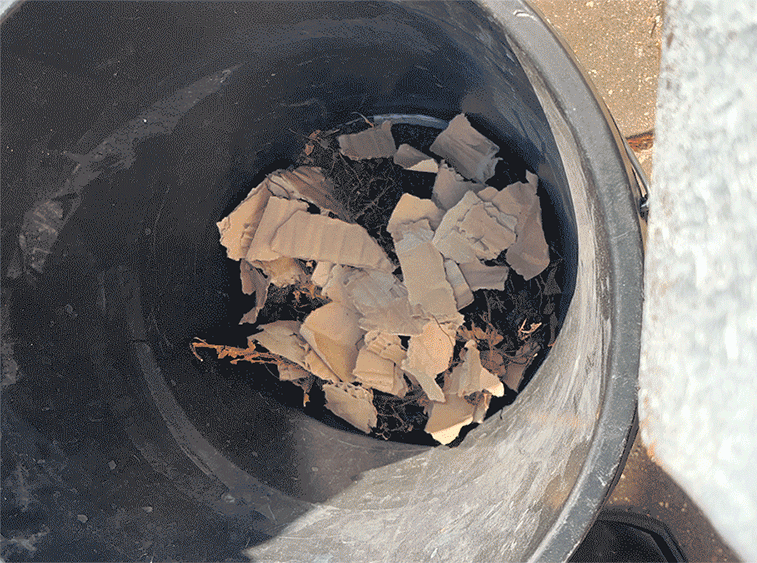
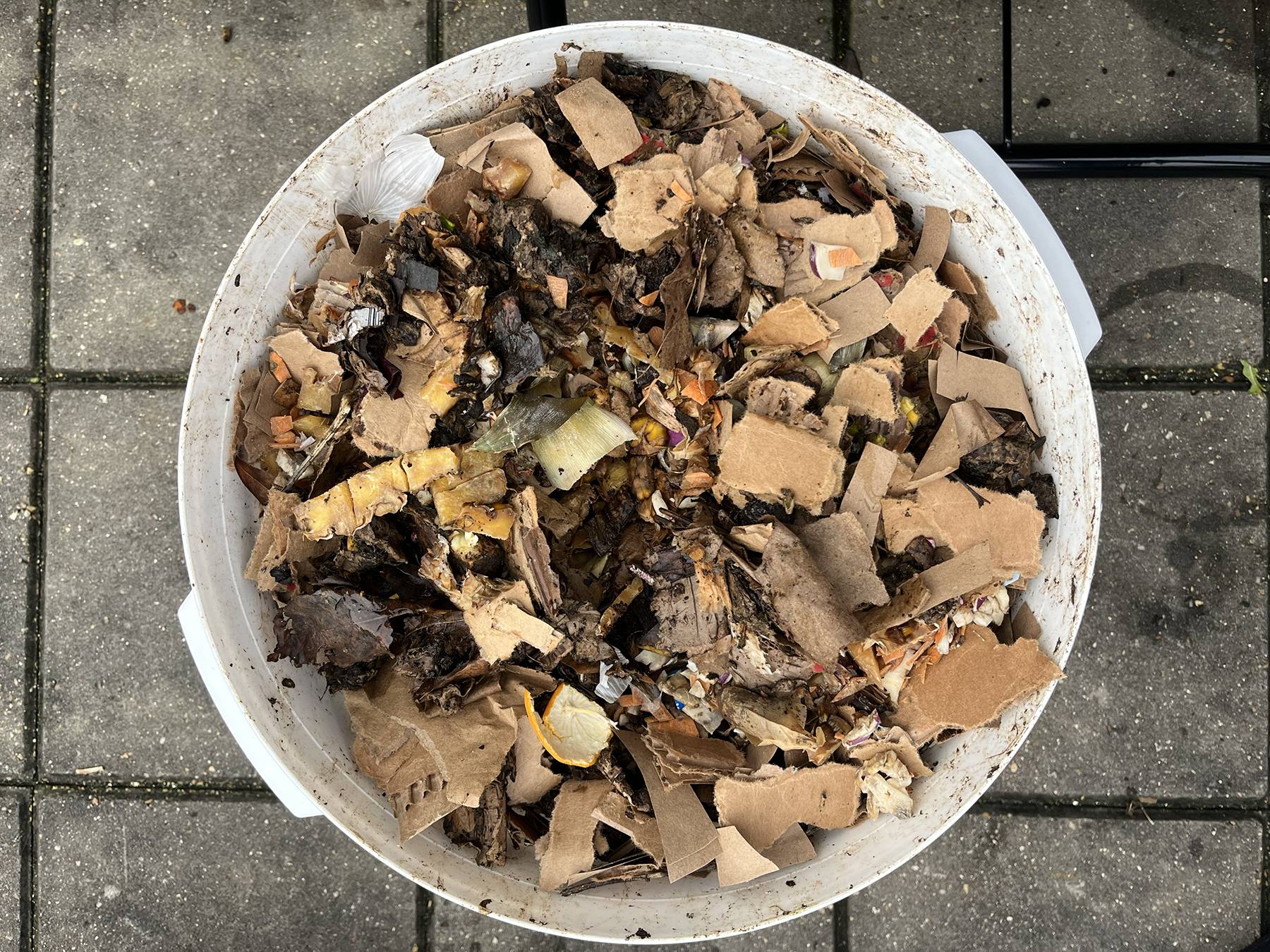
The bucket system is fantastic. In the summer, the rate of decay was such that it never got full despite the fact that I eat literal mountains of vegetables.
Within 2 months, sprouts emerged from the pile which apparently is a sign of healthy compost. I transplanted one into a pot, where it became a riotous plant that gave me one tiny, perfect squash.
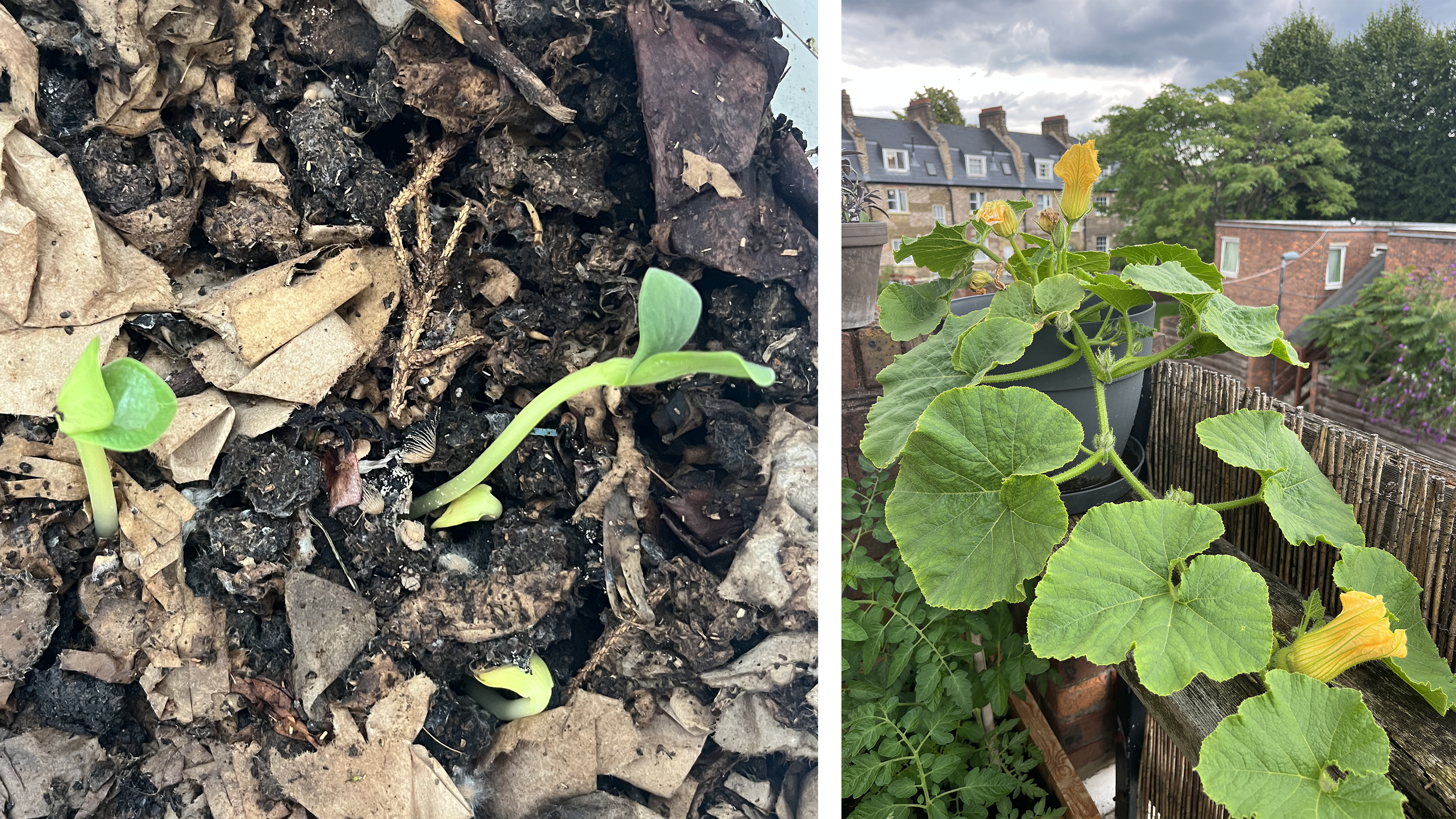
And it started to smell amazing! Deep, rich and earthy. I spent the summer making any friends who came over smell it.
Over winter, everything started to slow down and my buckets were getting full so I bought some larger rotating tumblers. I actually prefer the buckets because of the intimacy you get with the compost, but the tumblers look nicer and they tripled my capacity.
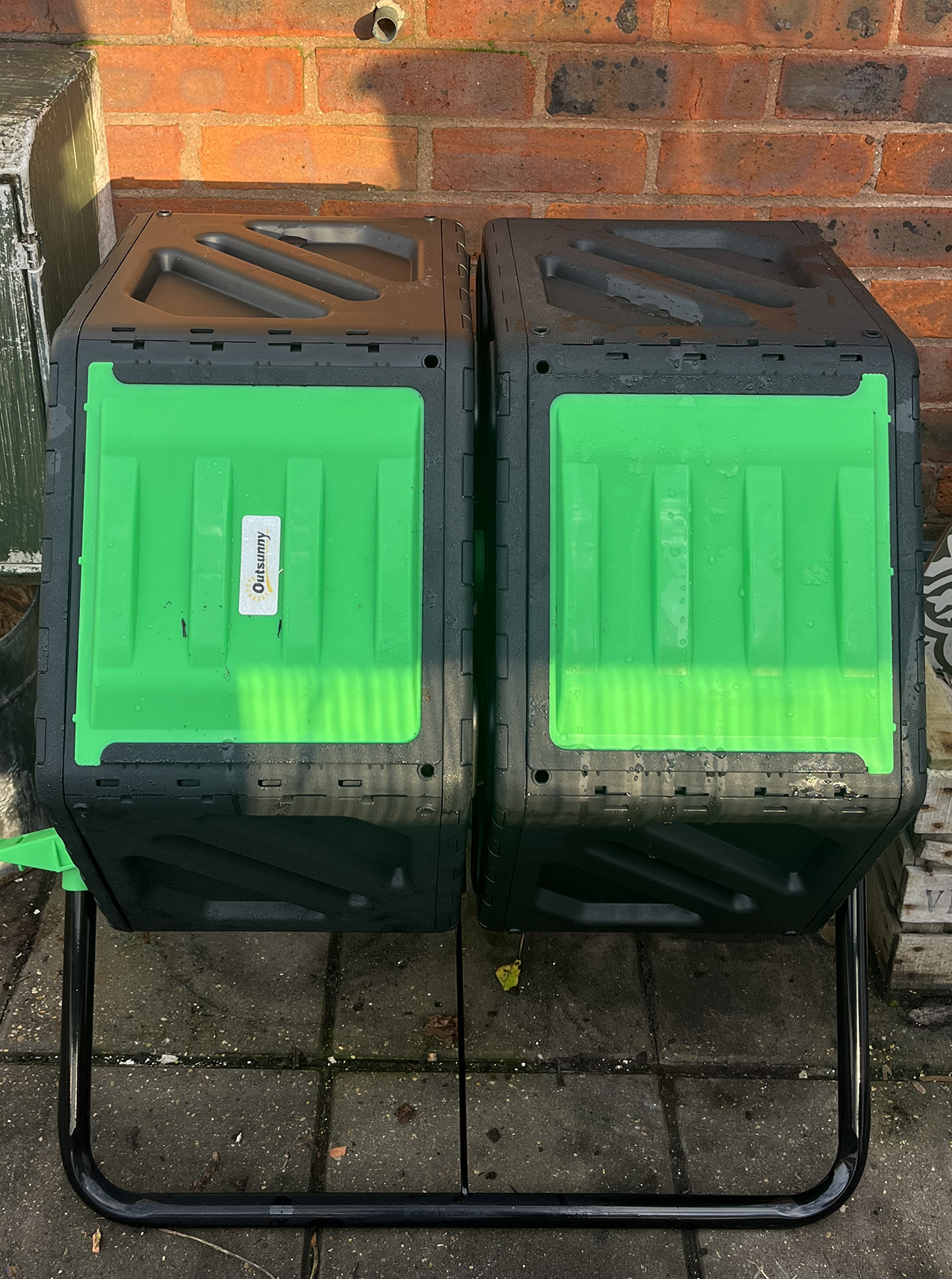
I’ve been composting for about a year and I’m constantly learning new things. Not least is patience. I want to mix it all the time and I want it to happen quickly. Compost does not happen quickly, it takes months or even years. Recently I was away for a few weeks and when I came back it was smelling so amazing, I realised I had been mixing it too much.
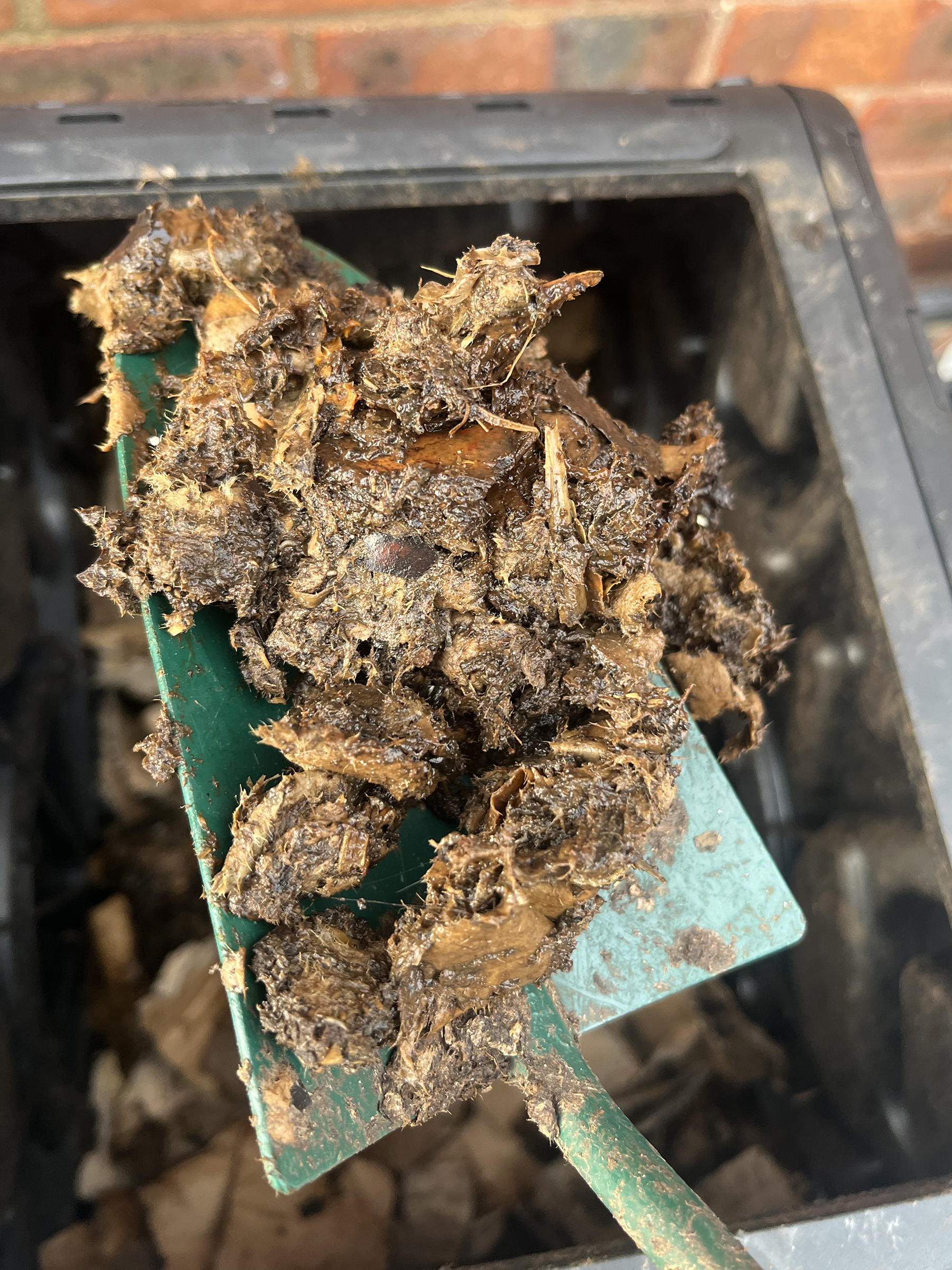
I’m definitely not an expert but through trial and error, I found a process that works for me:
- I shred cardboard while I’m watching a movie or in boring meetings. I keep it in a bucket next to the compost bin so every time I add food scraps, I had a handful of carbon, keeping my carbon/nitrogen ratio on point.
- I also cut all my food waste into tiny pieces so it breaks down faster.
- I still hand mix the tumblers, because regularly communing with it gives me a sense of what it needs.
- I have one bin curing, letting it alone to finish decomposition, and one bin where I’m adding new food waste.
It’s become such a normal part of my routine, now if I’m at someone else’s house I hate throwing food in the normal bin.
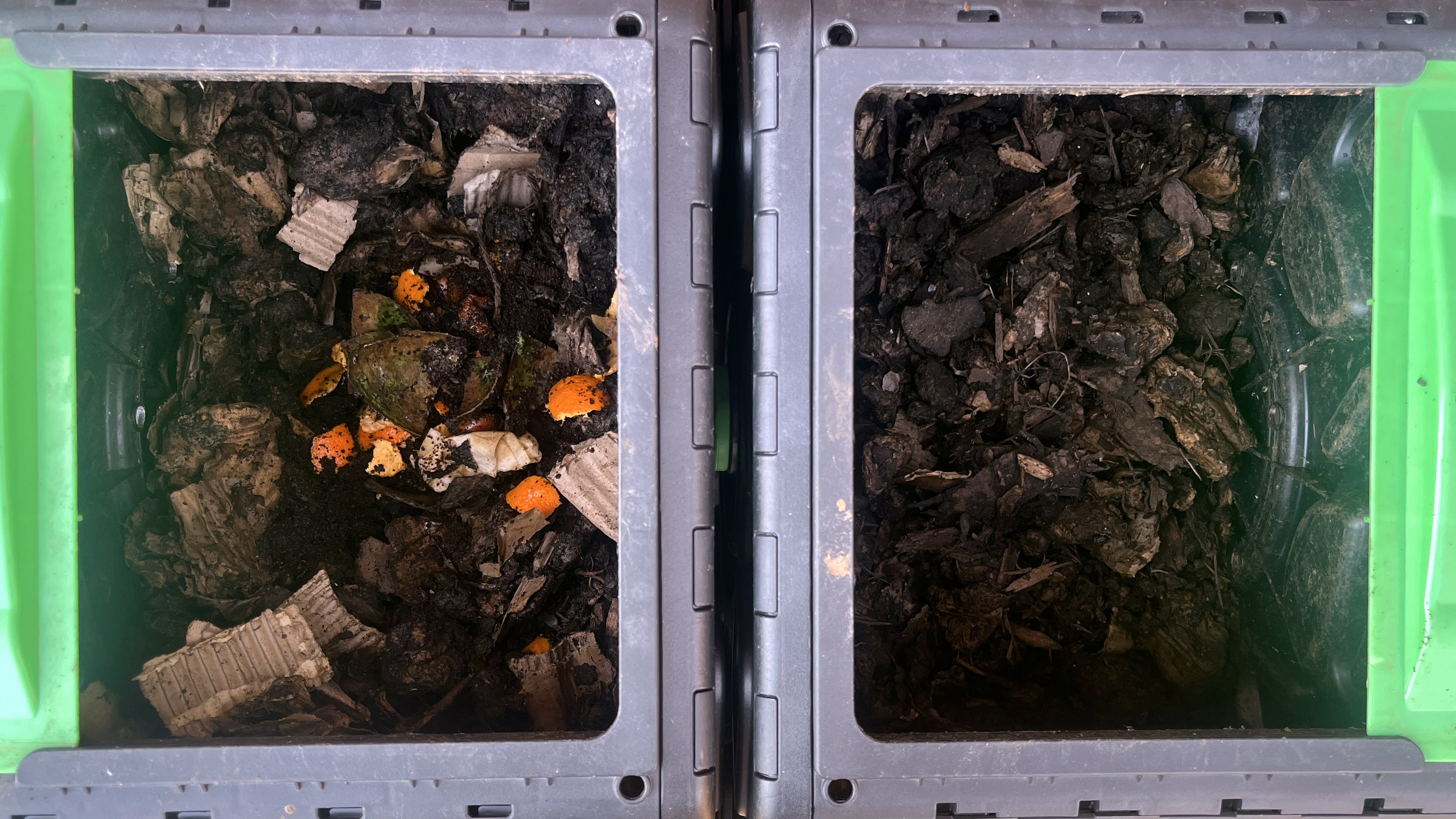
Before I started, I had this idea in my head that it was this really precise and scientific activity and you had to have all this knowledge to do it.
If you are into soil science, you can get very nerdy about it. But it can also be intuitive and haphazard. If my experience is anything to go by, you really cannot fuck it up too badly.
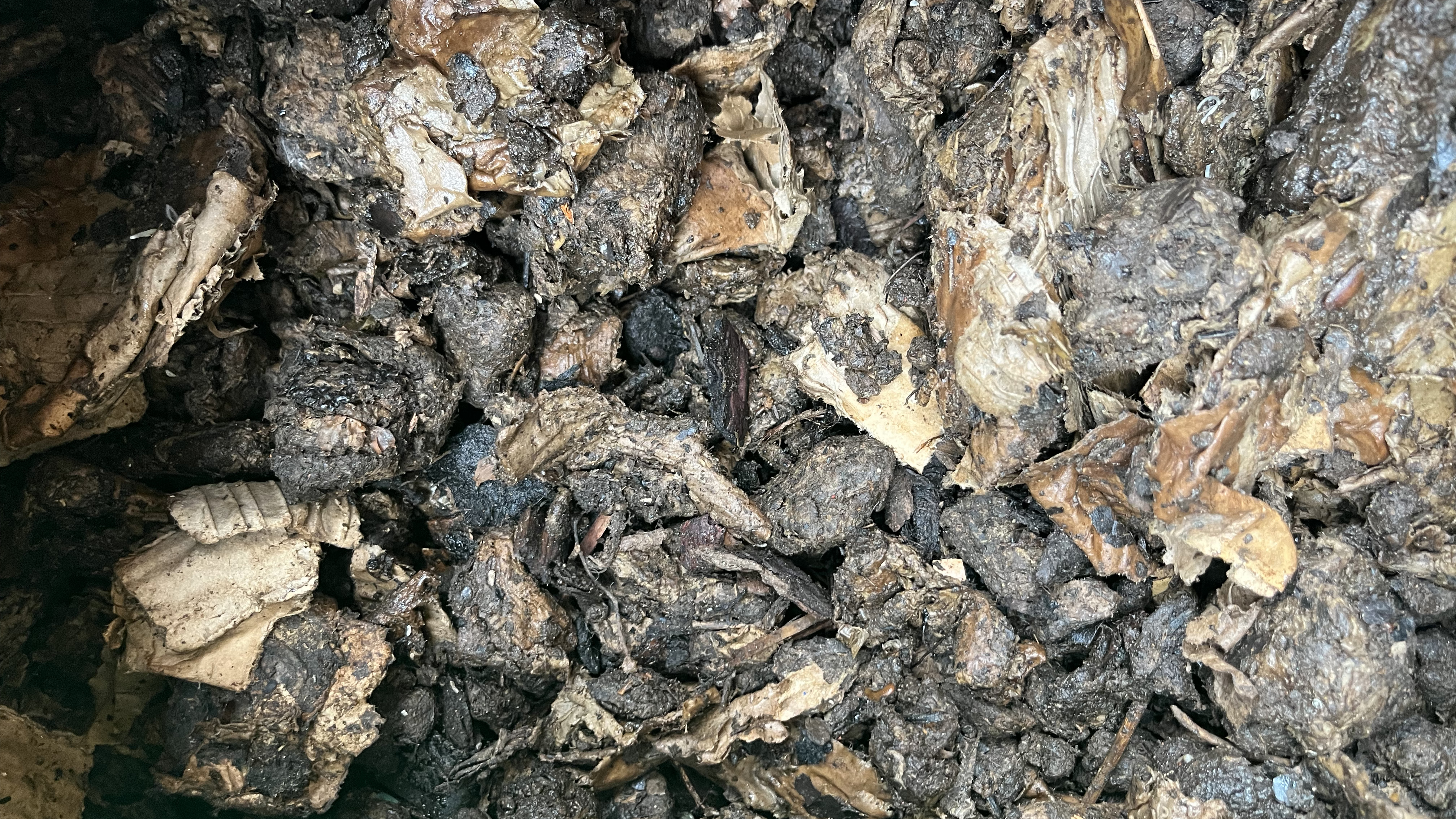
So, if you don’t compost and have been thinking about it, take this as a nudge to join the rotting pile club. It’s basically all pros and zero cons:
- You hardly ever have to take out the rubbish.
- It also uses cardboard that would otherwise go into recycling.
- I’ve used the first batch of compost from last summer to refresh my outdoor planters, feeding veg this year. It feels like magick.
- You can also put it on indoor plants, or if you aren’t a plant person you could gift it to growers.
And that’s to say nothing of reducing environmental impact of food waste Globally ~931 million tonnes of food waste was generated in 2019, an estimated 8-10% of greenhouse gas emissions. 61% of food waste is from households (UNEP report)..
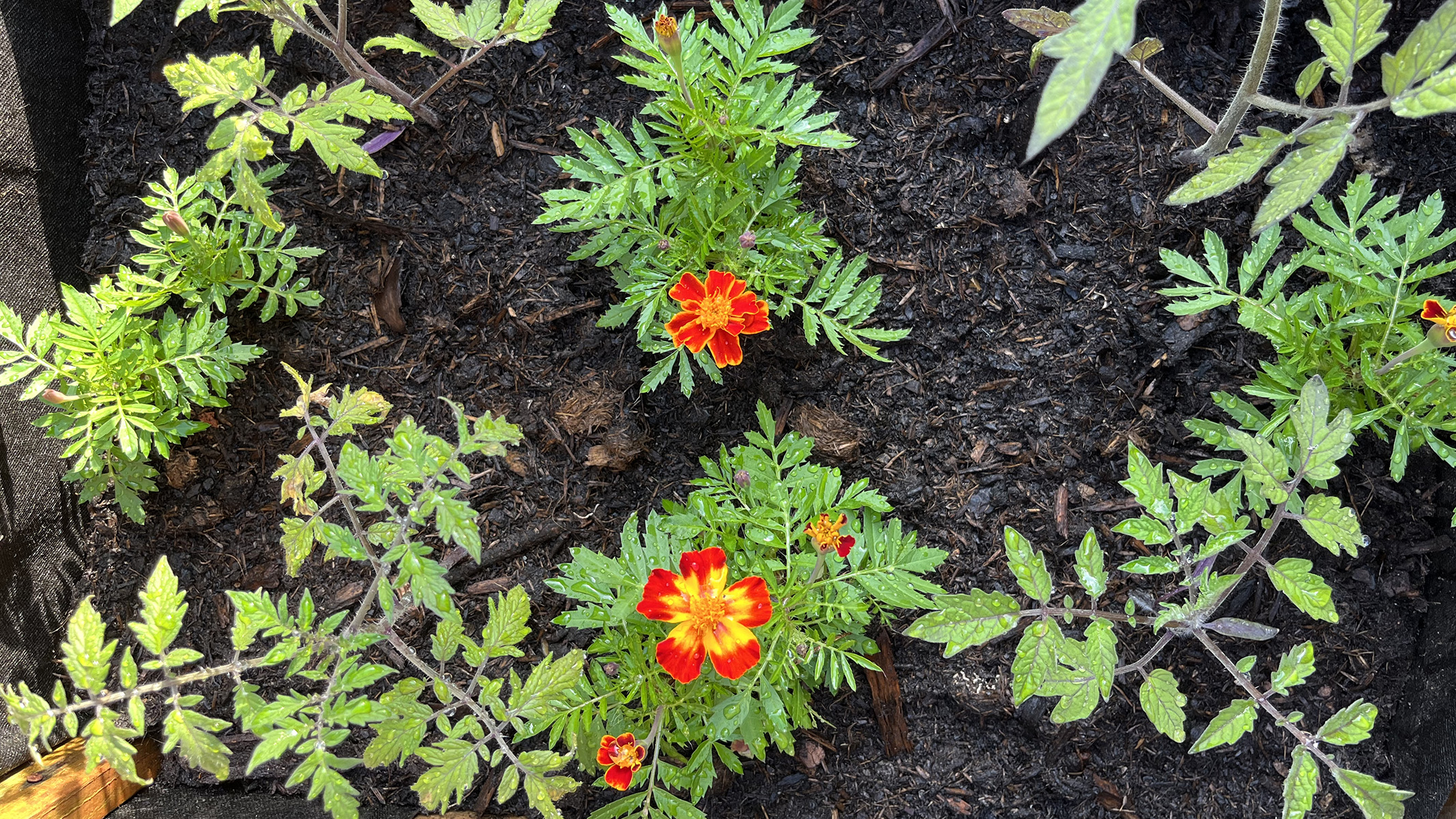
There is also the potential for something more profound. I’m not alone in believing that composting can teach us something about being a person living in partnership with the earth.
It’s joyful and nourishing. You get to participate in the transformation of something. All that rubbish goes into the pile and comes out again as living, fertile soil.
The great compost guru, Cass Marketos says,
We all participate in this fantasy where by throwing things in our trash, they magically disappear. But once you’re managing your own waste stream, you think about buying things differently.
Composting can call into question the values we live by.
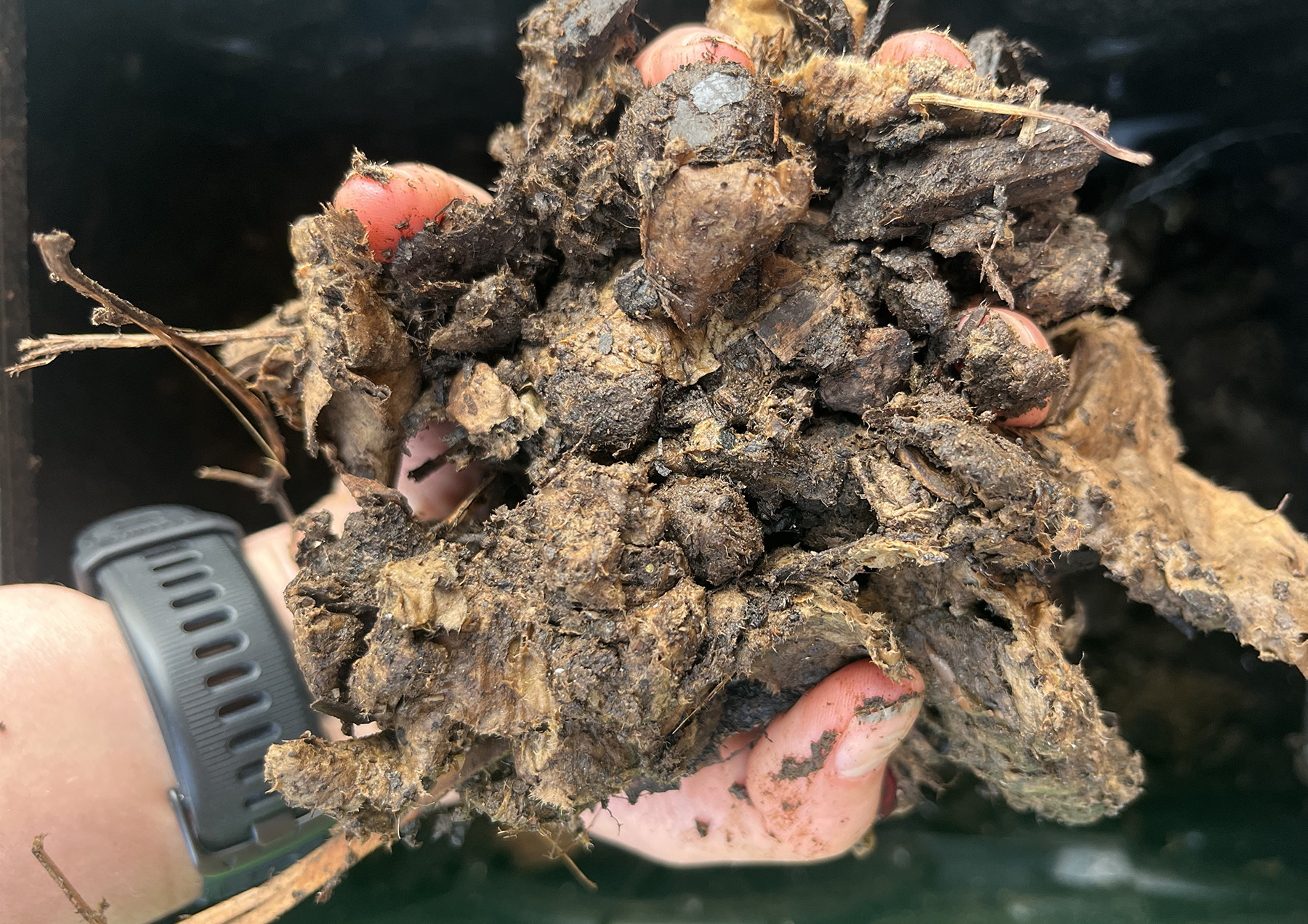
It doesn't just turn waste into soil. It can also do something to us. What we do has material impact on who we are, on the values we hold, which in turn impacts what we do. It's a feedback loop.
The philosopher Giles Deleuze Deleuze, G. 2006. Nietzsche and Philosophy. Translated by Hugh Tomlinson. says, after Nietzsche,
... we always have the beliefs, feelings and thoughts that we deserve given our way of being or our style of life.
In other words, we cannot think our way into having different values. They come from the way we live. But we may be able to transform our values by experimenting with the kinds of practices and relations we are engaged in.
Composting can be such an experiment. We may not be able to think our way into another mode of living. But perhaps, through composting, we might live our way into another mode of thinking.
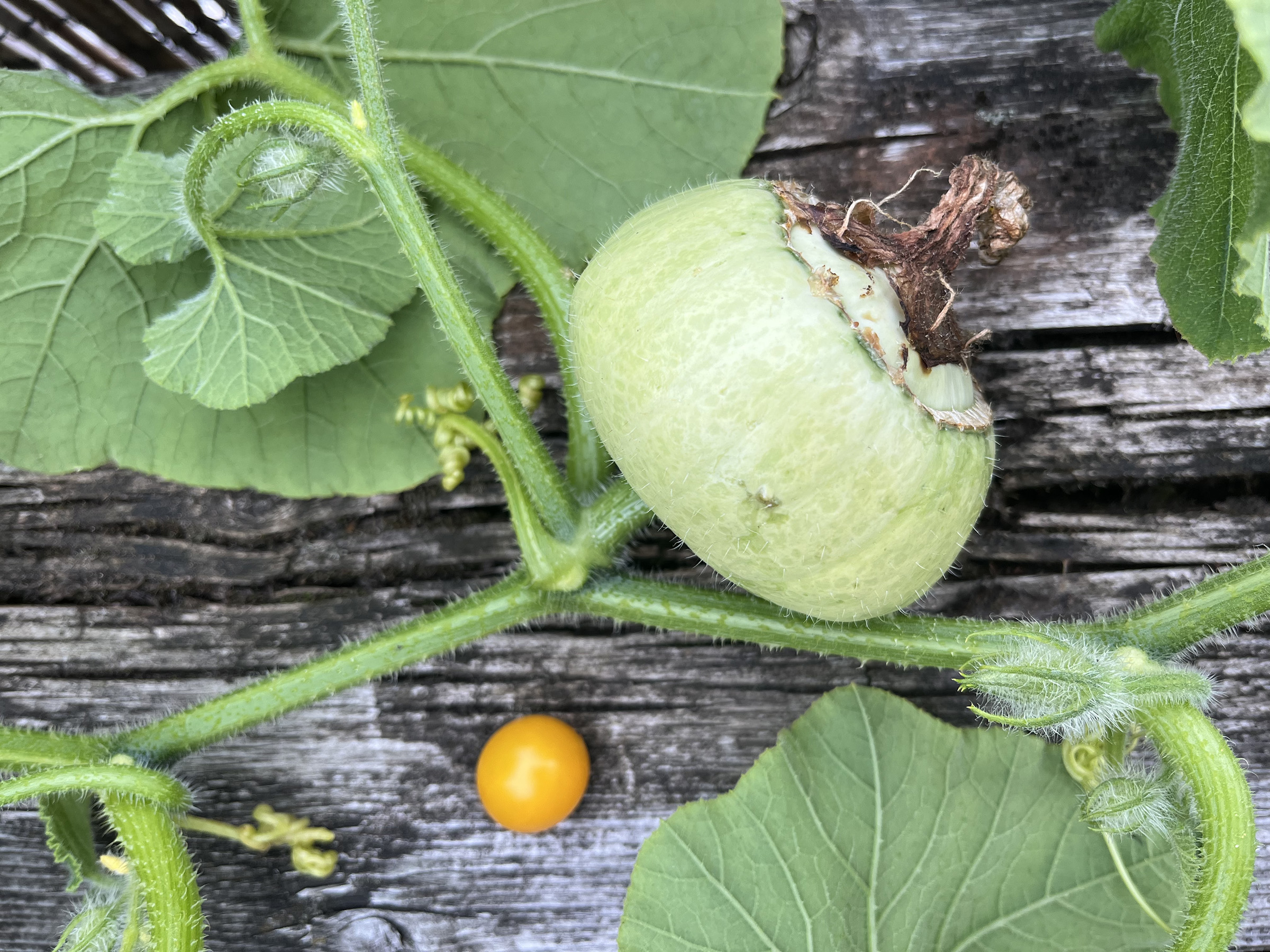
Other compost-related things you might like:
After I spoke, someone told me about their pal who is doing a phd in soil science. Their research shows that people who are unwell recover more quickly if they have contact with soil There were more details I can't remember because I was too wired but I think they’re doing a project to bring gardening into hospitals..
Go touch some dirt, my friends.
While your hands are dirty, the first thing to do is subscribe to The Rot and/or follow Cass on Instagram. They have instuctions for all kinds of composting.
Soil is Sexy is another good newsletter, though generally more technical.
Speaking of sexy, ultimate hot girl SZA says,
... soil is the basis of all of our humanity and our health. So I guess I’m into soil! I’m excited just to explore and see what’s the tea, see what I can learn.
That climate meme account called it,
soil is the new mushroom obsession
My clever pal Gemma wrote about archive as compost and other non-literal composting ideas. Gemma collects all kinds of composting things on Arena.
Another clever pal Ella wrote a stunning poem called The Worm. Part of the journey of rehabilitating my relationship with worms,
Wriggling is wrong. It does not wriggle. It undulates.
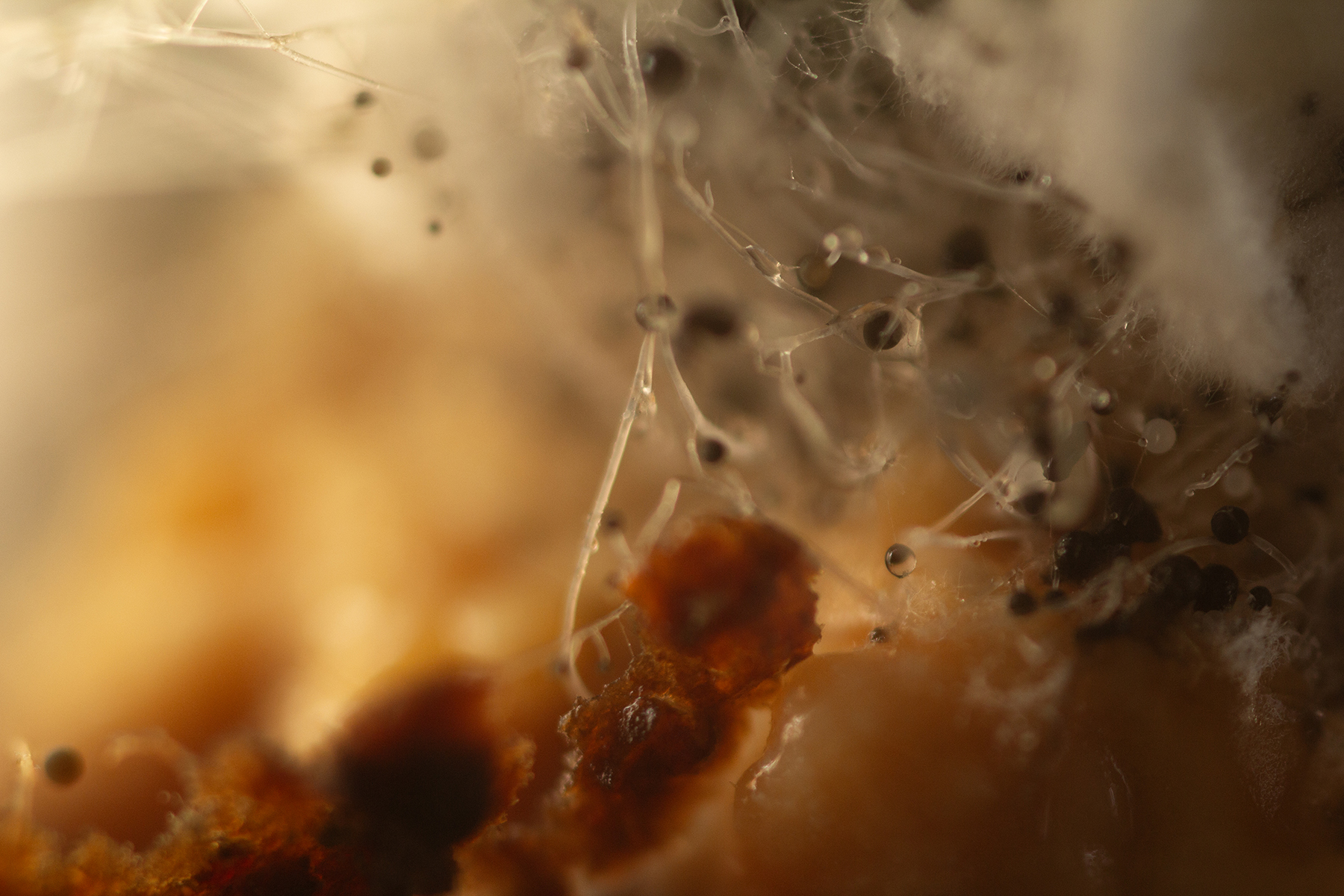
While I was writing this talk, I searched ‘compost’ in my phone and found a screenshot I took of an article from before I started composting.
A Politics of Habitability by Stacey Ann Langwick is a fantastic piece about plants, healing and toxicity in Tanzania. I recommend the whole thing, but here are some quotes from a section about composting.
In the gardens discussed here, compost is both practical consideration and a form of re-membering. Compost is that which fosters a process of living-through. It trains our attention on the ability of parts of the past that have been left behind, residues and scraps, to transform through specific entanglements into something other than themselves—and, if carefully tended, to transform into the components of rich healthy soil, the entanglement that grounds growth and other life. Compost re-members and in so doing, it decenters the work of crisis and its forms of forgetting.
The pleasures of composting rest in these interconnections, interpenetrations, and transformations. The stuff of the world must alter from itself, change from what it was: corn stalks, bean vines, fallen rotting tomatoes, spinach stems, and other debris from the garden and scraps from the kitchen left after human consumption. Exposure to living decomposers like bacteria, fungi, protozoa, algae, invertebrates, and insects triggers long and complex sequences of physical transformations: decomposition, mineralization, and humification. ... Our stakes in each other cannot be articulated through a loyalty or faithfulness to what one is; rather, the stakes consist in a commitment to becoming other—to becoming that through which other living might happen.
It’s not possible to talk about the land without acknowledging the dispossession of Palestinians of their land since 1948 and the ongoing and accelerating genocide and ecocide.
May we see a free Palestine within our lifetime.
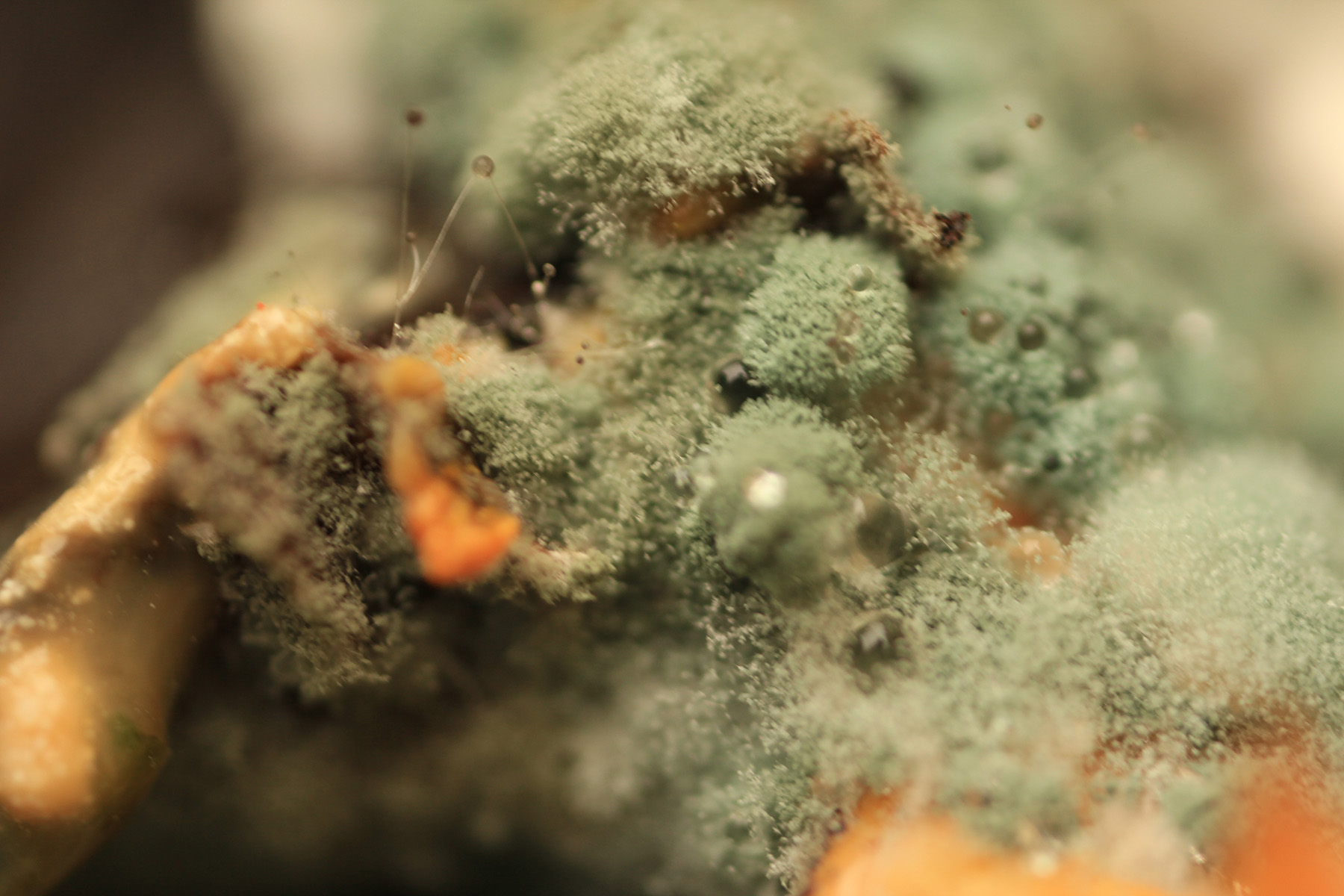
Thanks to Rod, Eliot and Katherine for feedback on early versions of the talk, they made me better. Thanks to Marina for the title and Anna for always exchanging compost updates.